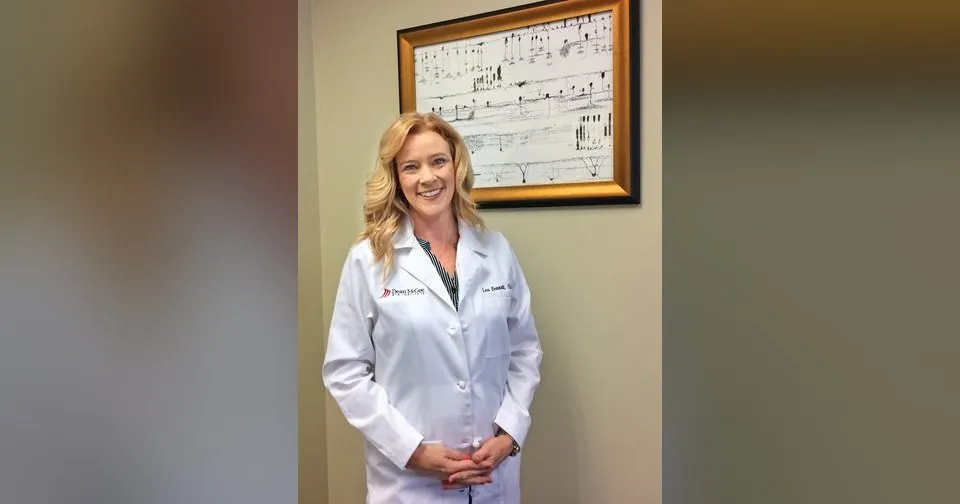Monday, October 15, 2018 | by Meg Wingerter
newsok.com online article link

Oklahoma City — To talk to Lea Bennett is to snap back and forth between a future full of possibilities to stop conditions that destroy sight and a present where most of those conditions are untreatable.
Bennett, a researcher who studies the genetic basis of eye diseases, and Dr. Sun Young Lee, an eye surgeon, are starting a clinic at Dean McGee Eye Institute for patients who have inherited conditions that damage their eyes and gradually cause blindness.
Many of the common causes of blindness, like cataracts, glaucoma and diabetic retinopathy, aren’t genetic. Inherited eye diseases affect one or two people out of every 10,000, Bennett said, and patients are diverse. Most people don’t notice their vision is slipping until late middle age, but others begin having problems seeing as children, she said.
Until less than a year ago, there were no options for treating patients with genes that cause eye damage, other than to try to manage their symptoms, Bennett said. In December, the Food and Drug Administration approved Luxturna, a therapy that replaces one defective gene with a healthy copy, improving sight in people with one of the many forms of inherited eye disease.
That’s one gene down, out of 269 known to cause eye disease, Bennett said. It’s also possible there are more genes that contribute to inherited eye disease which researchers haven’t identified yet, she said.
“We have a long way to go,” she said. “There’s 268 more to go, plus.”
Still, success with one gene raises the possibility that people with other mutations could someday have a treatment option. Bennett and Lee’s clinic will offer genetic testing to people who appear to have eye diseases driven by their genes, in the hope that they might be eligible for clinical trials in the future.
Even if patients don’t benefit from a clinical trial, their DNA may help discover which genetic mutations are important for eye disease, and which are random differences that have no effect, Bennett said. Following those patients over time and comparing their genetics and their clinical outcomes also will reveal more about how eye diseases work, she said.
Participating patients still can receive standard care for their symptoms, whether at Dean McGee or elsewhere.
Bennett said she expects the clinic will stay busy as it begins taking on patients. As far as she knows, no other organization in Oklahoma specifically studies inherited eye diseases.
“There’s definitely an unmet need here,” she said.



